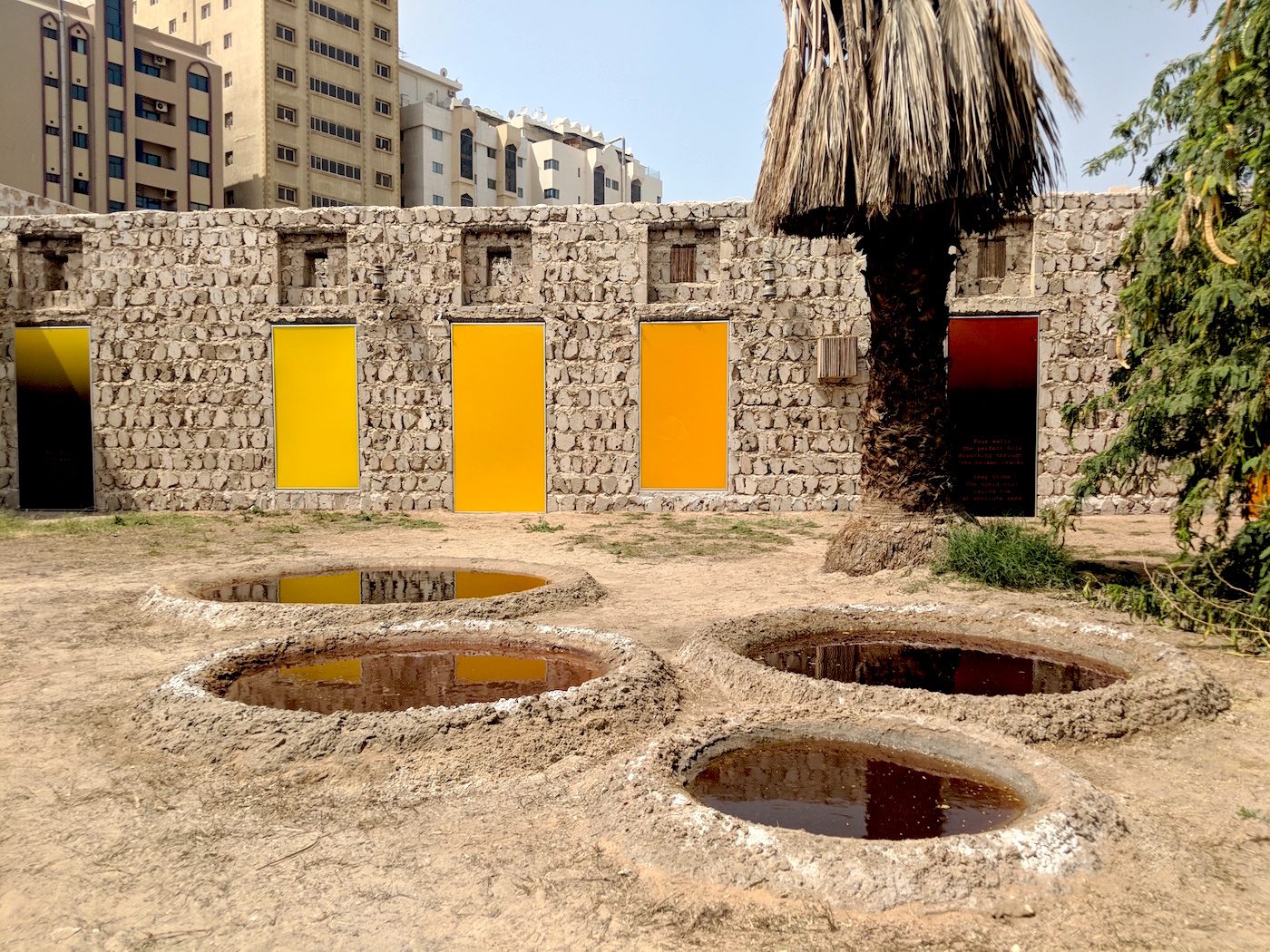Sharjah Art Foundation announced that Otobong Nkanga and Emeka Ogboh have been awarded the Sharjah Biennial 14 Prize for their installation, which is now on view at the biennial until 10 June 2019.

Otobong Nkanga and Emeka Ogboh, Aging Ruins Dreaming Only to Recall the Hard Chisel from the Past, 2019. Multi channel sound installation, sculpture and light installation, poetry. Dimensions variable. Commissioned by Sharjah Art Foundation. Courtesy the artists. Photo: C&
For their collaborative project « Aging Ruins Dreaming Only to Recall the Hard Chisel from the Past (2019) », Otobong Nkanga and Emeka Ogboh produced a multi-channel sound and light installation. The project comprises light boxes, a recording of an Emirati “rain song”, sculptures and poetry as well as sea water and salt filled crevices at the ruin Bait Al Aboudi, which is one of the this years’ biennial’s venues.
Artists Mohamed Bourouissa, Shezad Dawood, Phan Thảo Nguyên and Qiu Zhijie received special mentions.
The jury for this year’s Sharjah Biennial Prize included critic and curator Octavio Zaya; scholar and theorist Homi K. Baba; and curator Solange Farkas.
The Sharjah Biennial Prize was established by Sharjah Biennial in 1993 and is now awarded by Sharjah Art Foundation. The honoured recipients are selected by a distinguished jury appointed by the foundation. The Sharjah Biennial Prize is given upon the jury’s discretion and can be granted to any number of artists.
Otobong Nkanga (*1974 in Kanu, Nigeria) works across a broad spectrum of mediums, including performance, installation, photography, drawing and sculpture, in order to explore ideas surrounding land and natural resources. She sometimes serves as the protagonist in her performances, videos and photographs, acting as a catalyst that sets the artistic process in motion.
Emeka Ogboh (*1977 in Enugu, Nigeria) produces audio installations and gastronomic works, exploring how private, public and collective memories and histories are translated, transformed and encoded into sound and food. His works contemplate how sound and food capture existential relationships, frame our understanding of the world and provide a context for critical questions on immigration, globalisation and postcolonialism.
More Editorial